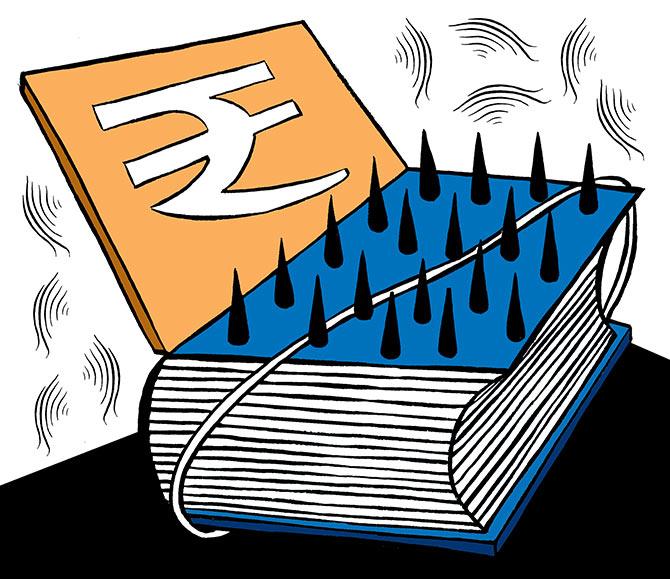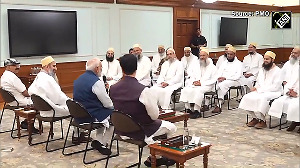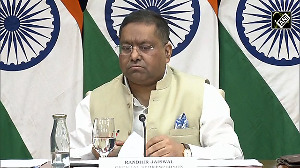The department apparently suspects the use of shell firms or front entities in some aspects of such remittance.
Money might, it suspects, have moved in some cases from tax-free jurisdictions or tax havens to accounts in the UAE and some South Asian countries.
Illustration: Uttam Ghosh/Rediff.com

About 30,000 individuals who sent money abroad under the Liberalised Remittance Scheme (LRS) have come under the income tax authority’s lens for the current assessment year.
The department has sent scrutiny notices to these people, seeking details of the foreign accounts, properties and shares in the relevant company abroad.
The LRS is a scheme of the Reserve Bank of India (RBI), meant to allow individuals who reside here to remit money up to a specified limit during a financial year to another country for investment and expenditure.
Under current regulations, this annual limit is $ 250,000 per financial year.
This may be used for expenses on travel (private purposes or for business), medical treatment, studying, gifts and donations, maintenance of close relatives and more.
It may also be invested in shares or debt instruments or for buying immovable property.
Individuals can also open, maintain and hold foreign currency accounts with banks outside India for doing transactions permitted under the scheme.
According to sources, the department had found irregularities in the claims made by assessees regarding the sending of such money abroad.
Expenditure claimed in the profit and loss account was not wholly and exclusively for the purposes listed under the scheme.
Most of the assessees in question are either traders or professionals; there are also those who sent money abroad for donation purposes.
“These cases have been selected for scrutiny after examining all the aspects with respect to foreign assets declared in the income tax statement.
"Accordingly, the systems have compiled certain queries with respect to source of investment and tax liability on the assets owned by the assessees conerned,” said an official.
The notices went under the new ‘Faceless Assessment Scheme’.
Altogether, about 60,000 scrutiny notices were served. Replies, with documents, must come online in 15 days.
The department says it wishes to check if the stated purpose for sending the money was fulfilled or not.
The department apparently suspects the use of shell firms or front entities in some aspects of such remittance.
Money might, it suspects, have moved in some cases from tax-free jurisdictions or tax havens to accounts in the UAE and some South Asian countries.
Further, the department is checking whether there is any indirect breach of the threshold amount by creating dummy accounts to misuse the scheme.
The department is learnt to have applied a computer-assisted scrutiny selection, with about 100 parameters to scrutinise returns under the system.
Other than foreign assets, high-value transactions, misreporting of long-term capital gains, claimed tax deduction at source not matching with tax forms and non-disclosure of investments made in the name of a spouse or kin are part of the scrutiny notices.













 © 2025
© 2025